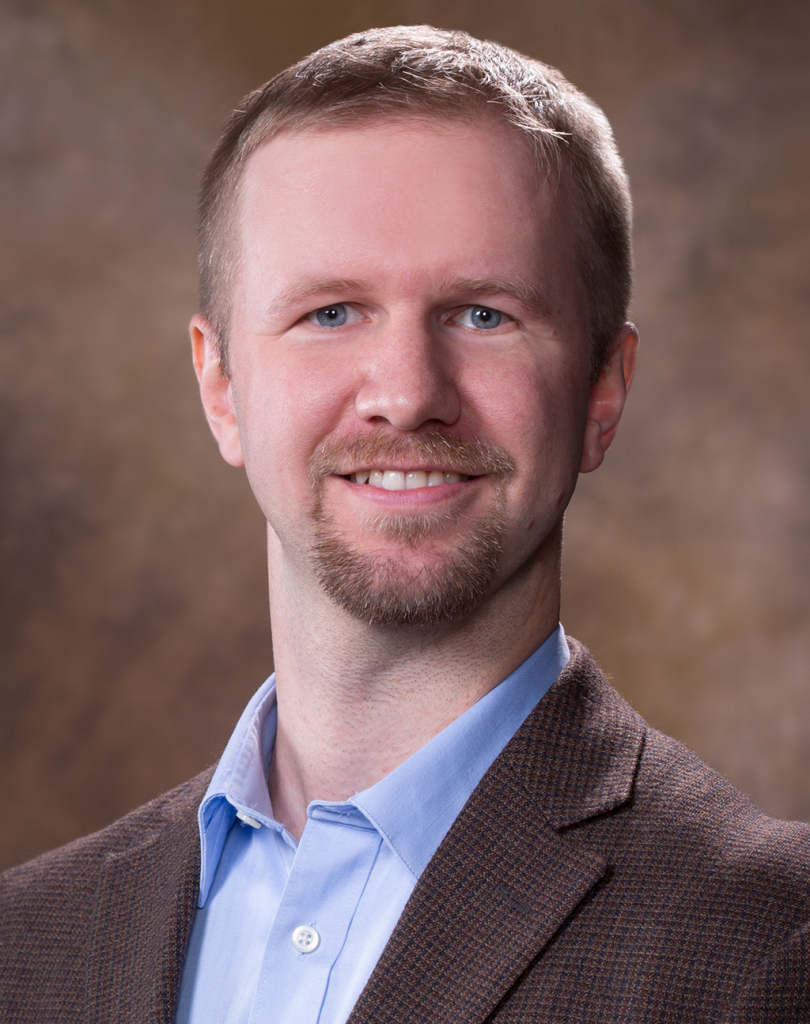Dr. Warren Herold (University of Arkansas) is co-PI of the SMV-funded research project “The Virtue of Self-Distancing.” He is collaborating with co-PI Dr. Ethan Kross (University of Michigan) and Dr. Walter Sowden (Walter Reed Army Institute of Research).

Meet Our Researchers – Warren Herold

WARREN HEROLD (Ph.D., University of Michigan) is Assistant Professor of Philosophy at The University of Arkansas. He works primarily in ethical theory, moral psychology, and the history of ethics; he is also interested in social & political philosophy, the philosophy of economics, and various areas of applied ethics. His recent research has focused on the moral philosophy of Adam Smith, the role of imaginative perspective taking in moral deliberation, and the psychological foundations of contractualism.
Most of my research addresses issues in ethical theory, moral psychology, and the history of ethics, though I am also interested in social & political philosophy, the philosophy of economics, and applied ethics. My primary focus for the last few years has been on the moral philosophy of Adam Smith.
I did not study much philosophy as an undergraduate. I majored in economics, environmental studies, and music history. After college I worked for three years as an economic analyst in the environmental policy division of an economic consulting firm in Boston, and earned a master’s degree in environmental and resource economics from University College London. I enjoyed working as an economist, but I kept bumping up against difficult questions – about rights, about justice, and about the values of various non-economic goods (e.g., health, safety, the natural world). Dissatisfied with the way economists typically discussed such things, I began to look elsewhere. I found better answers in the work of moral and political philosophers, and I decided to switch from economics to philosophy. At the time, I had no interest in either moral psychology or the history of philosophy, but a single course at the University of Michigan taught by Stephen Darwall on the history of ethics changed that. I became fascinated with the work of David Hume, Adam Smith, John Stuart Mill, and many others. I was amazed by their insight, by their rich and subtle arguments, and by the connections between their work and more recent research in philosophy and empirical psychology. I found in them a new source for answers to the questions that first motivated my move from economics to philosophy. I have been working on the intersection of ethics, history, and psychology ever since – looking for answers and finding new questions.
Our research team can trace its origins back to January of 2013. At that time I was a PhD student in the Department of Philosophy at the University of Michigan, writing a dissertation on the moral philosophy of Adam Smith. I was working on Smith’s account of sympathy, his theory of the impartial spectator, and his explanation of the origin and development of our capacity for critical self-evaluation. Smith makes a number of empirical psychological claims in his work – claims about what happens when one imagines oneself in another person’s shoes, for instance, and what happens when one imagines oneself as the spectator of one’s own conduct. As my research progressed, I began to wonder whether anyone had ever tested any of Smith’s claims.
After reading through the relevant literature, I was thrilled to learn not only that recent experiments had tested claims like Smith’s, but that the results were positive: study after study confirmed Smith’s predictions. Moreover, I learned that the principal investigator in many of these studies, Ethan Kross, was, at the time, an assistant professor of psychology at the University of Michigan. His office was about 100 yards from mine! What are the odds? I sent him an email, we met and discussed our research, and he invited me to give a talk in his lab. One of his PhD students at the time, Walter Sowden, attended my talk and expressed an interest in exploring the connections between his research and my own. Though we did not know it at the time, our research team was created on that day in early 2013. We’ve been looking for a way to pursue our collaborative research ever since. The Self, Motivation, & Virtue project gave us a way.
I am interested in the idea of the self as a necessarily self-reflective agent: an agent capable of stepping back from his or her own thoughts, feelings, beliefs, desires, etc., and critically evaluating them from an independent point of view. In particular, I’m interested in learning how the process of critical self-evaluation works – how we learn to do it, how it is influenced by our social environment, and how engaging in it affects the way we see ourselves and our relations to others. In short, I’m interested in the connections between the way we self-evaluate and the way we deliberate and act.
Our current project explores this connection by looking at what happens when individuals reflect on their actions from a particular point of view. Specifically, it examines how thinking about ourselves from a third-person perspective affects the way we make tradeoffs between ourselves and others. Once it is completed, I believe that our work will provide important information about the connection between self-evaluation and virtuous motivation, suggest new ways of exploring related issues, and even lead to new ideas about how to teach people to deliberate more effectively.
